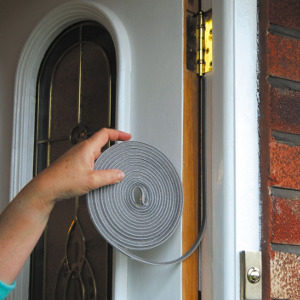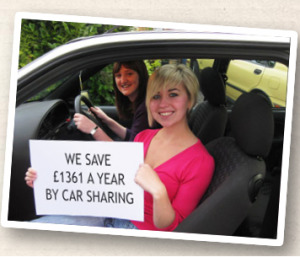How to save over £3,000 & find more time to spend with the kids
Spend less vs. Earn more:
Reducing your expenses is one of the easiest ways to generate more cash and is typically much easier than earning more. Options to earn more are typically limited, time consuming and fraught with complications. Plus, you don’t pay any extra taxes on the money you save – so you get ALL of it.
On top of that, by not working more to earn more, you have more time to spend with your children – and on planning and preparing your time with them for maximum value.
Read on for some practical tips on how to keep your hard-earned in your pocket and get more from what you do have to shell out.
What’s in it for you?
The direct benefits that apply to you are, apart from the obvious “more money”, a reduction in stress. Money related stress is one of the biggest causal factors for breakdowns in family relationships – and not just between adults, adult-to-child relationships suffer too.
As discussed in another post “How to REALLY up your dad game”, children want our presence more than our presents. Knowing that you don’t have to put your last penny toward the latest toy, combined with reducing your outgoings overall, should give you exponentially more breathing room and allow you to start a small savings fund for rainy days, holidays or emergencies.
It will also allow you to enjoy your time with your kids more – because you’ll be worrying less.
What’s in it for them?
The opposite is true too – with a less stressed dad, they’ll enjoy their time with you more.
Not only that, but your stress will typically rub off on them and can cause the anxiety that drives them to ‘play up’. So if you’re more chilled, you’ll also be able to have more fun together because you won’t be unwittingly fuelling any negative behaviours.
They’ll look forward to their time with you and your relationship will flourish.
How to spend less:
Your household bills are a great place to start, and the best part is that you can most likely do it over the internet while the kids are asleep.
Let’s start with a list of things you can probably get a better price on, or maybe do away with altogether.
- Energy – Gas, Electric, Oil
- Insurances
- Internet & home phone
- Mobile phones & tablets
- TV Packages – movies, sport etc.
- TV Services – NowTV, Netflix, Prime, Hulu etc.
- Music Services – iTunes, Spotify etc.
Downsize your energy bills, upsize your savings
The Government’s Department of Energy & Climate Change have previously stated that many households could save around £200 a year through switching energy supplier. This particular research is now a couple of years out of date, but the trend is the same with current comparison sites and newspapers touting figures of the same or more. Moneysavingexpert.com stated that 60% of households could save £300 in October 2017.
There are several comparison websites that offer energy switch services and they are well worth looking through, I’ve personally saved hundreds from switching previously. Depending on the size of your tribe that could translate to a small holiday, a great day out at a theme park or finally replacing the worn out whatever-it-is. Some providers offer incentives too, but do make sure that it’s still the better deal – don’t be swayed by £50 of vouchers if it’s £100 more expensive.
MoneySupermarket, uSwitch, CompareTheMarket, GoCompare should give you enough to get started. MoneySavingExpert on the other hand is literally packed with great advice, reviews and comparisons on all sorts of products and services that also give consideration to various lifestyles, circumstances and personality traits, I strongly recommend you head over and have a read. Not all comparison websites cover all suppliers and deals, so it pays to shop around a little.
Another point worthy of note is how you pay for your energy. Monthly direct debit is typically the cheapest way to pay with prepayment card and key meters the most expensive.
Did you know that even if you’re on a prepayment meter in a rented property, you can have the meter changed to get access to much better energy prices?
According to Citizens Advice you don’t need to ask the landlord for permission either in most circumstances, though a politely worded email informing them that you’re doing so and why will normally help keep landlord-tenant relations amicable. The landlord can require that you change the meter back at the end of the tenancy, or keep some of your deposit to cover the costs of doing so but even then you’re still likely to be saving.
Always check your tenancy agreement and contact Citizens Advice if you’re unsure of your rights.
A word of caution though, while the most expensive way to pay, prepayment meters can be the best option, especially if you struggle to stay on top of your bills – if only because they force you to carefully monitor your consumption.
Yes, and I’m going to repeat this a few times, reducing your bills is going to take time. It could take a few hours to gather information on your current usage and do a detailed comparison, so let me ask you this… what is more valuable to you? Watching the match tonight in HD, or being able to take the little ones to the beach for a weekend next month?
Estimated savings so far £300 per year / £25 per month
Efficient is the new excellent
Ok, you’ve found a much better deal and switched supplier – awesome! Guess what? There’s still more we can do, a lot more. We’re on the subject of energy – so do you know how efficient you are, how much energy you’re wasting? Probably not. Most people don’t, don’t worry, let’s review…
There are a number of things that you can do to reduce your energy use and further reduce your bills. These range from free to potentially quite expensive investments, but nevertheless will reduce your bills and should give you a return in the long run.
The simplest, easiest change that could well be the most difficult habit to form – turn things off at the wall.
Did you know that your phone & laptop chargers, TV’s, DVR’s etc. all use energy when not in use? Any cable with one of these power blocks will be using energy even when it’s not connected to it’s device. Sure, it’s not a lot of energy, but when you have several of these throughout your home plugged in 24/7, pennies quickly become pounds – around £30 a year.
I appreciate that not all sockets are easily accessible to switch things off – there are inexpensive workarounds however, starting with the mighty extension lead. Place this in a more accessible location to switch off or unplug individual devices or chargers when not in use.
There are also a number of power saving extension leads on the market (like this one from Masterplug) for use with computers and TVs that will power everything off when not in use, and still power on again using the remote. They typically come with a master socket for the primary device, ancillary sockets for other connected devices and an always on socket for those devices that are problematic when power is removed (such as cable or satellite boxes).
This setup works well as you won’t typically be using the games console, Blu-Ray player, surround sound etc. unless the TV is on – so when you switch the TV off, the smart extension shuts down all the ancillary sockets “at the wall” to cut unnecessary power consumption. Smart extension leads for computers work in a similar way, shutting off printers, shredders, chargers etc. As a bonus, most if not all of these have surge protection built in too.
Continuing with the TV topic, a lot of people like to keep the TV on for ‘background noise’ either for themselves or for their pets while they’re out. I get it – the TV uses an awful lot of energy though, to power that massive screen that’s not being watched. If it’s just for background noise, why not switch to a radio station (a lot of TV’s have this built in) that will reduce or disable power consumption by the screen.
Better still, a dedicated radio will use a lot less power and modern ones sound much better than they used to. They’re inexpensive and a lot can connect to the internet and run your favourite music apps.
Another simple “switch it off” tip applies to the lights around your home. Get into the habit of switching the lights off as you leave the room and consider replacing your lights with LED’s. Technology has moved on significantly and you can now buy LED bulbs in almost any shape and size including dimmable and remote controlled. Although they do typically cost more to buy, they last longer and cost a lot less to run than their counterparts so you should see savings in the longer run. Several also come with guarantees, so if they do fail you can have them replaced free of charge. The average household could replace all their bulbs for £100 and save about £35 on energy bills.
Moving on, let’s consider your heating requirements. In the same vein here, there are loads of things to be done from insulating to adjusting the thermostat and wearing more clothes.
As mentioned earlier, this could take a little time, but will certainly be worth it.
First, insulating. This can massively reduce your heating and cooling costs – data from the energysavingtrust.org.uk suggests savings of £120+ for houses in the UK – and there are generally a lot of grants about to enable you to have it done relatively cheaply or even free. Some even apply to landlords, so even if you’re renting you can reduce your bills while increasing the value of their property. Why would they say no?
These grants typically apply to lofts and sometimes wall cavities, there is however still simpler and easier to manage insulation that you can do yourself.
 Identify draughty windows and doors and consider options to fix the draught – simple, cheap foam draught excluders and brush strips can work wonders and are dead easy to install. If you’re not a DIY-er yourself there is more than likely someone you know who can fit them for you for a cup of tea (or a few beers), and save you £25 a year.
Identify draughty windows and doors and consider options to fix the draught – simple, cheap foam draught excluders and brush strips can work wonders and are dead easy to install. If you’re not a DIY-er yourself there is more than likely someone you know who can fit them for you for a cup of tea (or a few beers), and save you £25 a year.
Turn the thermostat down by a degree & set the timer appropriately, this alone can save £80 a year. There are a few people I know that insist on wearing shorts and t-shirt at home in mid-winter with the thermostat set to either “tropical” or “volcano”, and yet others who will put an extra layer on because the A/C is too cold in summer!
Set your thermostat to a comfortable room temperature, around 19oC for most people and dress for the season.
Review the times your heating is on, most systems have a timer of some sort either on the boiler or as a separate control unit. With a little experimentation you should be able to determine how long it takes your home to heat, if you don’t know already. You probably also have a fairly routine daily pattern, so set your heating to come on with just enough time to heat your home before you get there or before you get up in the morning. E.g. if it takes an hour to heat up to a comfortable temperature, and you normally get home around six, have the heating come on at 5.
Fit thermostatic radiator valves, these help to control the temperature of individual rooms by having the radiator valve shut of the flow when the room reaches the desired temperature range. This also allows you to set a lower temperature for bedrooms (to aid better sleep) while maintaining a higher temperature for living areas. By shutting off individual radiators more and hotter water is diverted through the remaining ones, this allows those rooms to heat up faster and the boiler to shutoff sooner, again saving energy and money – around £75 a year with a full control set.
You could also consider a smart thermostat such as Nest, these learn your heating habits and automatically switching heating on and off based on your programmed ‘rules’ as well as what it has learned. These smart thermostats can also be controlled remotely and integrate with other household systems such as smoke and CO2 alarms.
While I’ve focussed on hot water central heating above, the same or similar controls apply to most other heating systems, whether centrally heated air or night storage heaters. The controls may be located differently, and with night storage you’re likely to have to set each heater’s timer independently. Similarly, while not too common in the UK, you can apply the principles to A/C systems for summer cooling – including insulation.
Having a window open to allow fresh air to circulate and stop it getting stuffy inside is a perfectly sensible thing to do, however having the window open all day and night while the heating is on, isn’t. As with all the other tips here, this is going to require a change in habits and possibly a little more work, but you’ll see the returns in your pocket. Open the window in the morning when you get up, allow the fresh air to circulate while you shower or have breakfast and close it again before you go to work. This allows you to remove stale, sweaty overnight air without having your heating compete with a constant flow of cold outside air.
The Energy Saving Trust has an article on Energy saving quick wins that covers the above and more, well worth the few minutes it takes to read.
Estimated savings so far £665 per year / £55 per month
Ensure you insure, for what you need – and no more
You should have several insurances in your life and while a significant number of people still don’t shop around for the best deal, you should. The research agency Consumer Intelligence found that the average driver will overpay for car insurance by £75 and home insurance by £66 after three years. Not only that, but this overpayment increases over time with the typical loyal customer paying £127 too much for home insurance and £116 extra for car insurance in year nine.
I’m not talking just about price here either. I previously worked in the insurance industry and it was genuinely shocking the number of people who didn’t really know what they were covered for, or what they needed cover for.
Household insurance policies have changed significantly in terms of what they offer cover for as well as how much cover they offer in terms of monetary payout. It is important to understand what you actually need so you don’t spend money on cover that you can’t use, either because you don’t have whatever you’re insuring or because you don’t have sufficient cover should you need to claim.
For example, most home contents insurance policies operate on a new-for-old replacement basis. This means that if everything in your home was lost, say, to a fire, your insurance cover would need to be sufficient to replace everything brand new – right down to the last sock and teaspoon. So, you need to insure for the new cost of everything, not the current value. Your old sofa may not be worth much, but it will still cost a pretty penny to buy the equivalent one brand new – and you need to be covered for it.

Car insurance typically works in the opposite sense, you’re insuring the value, not the cost. So, while your chariot may have cost you £000’s when you bought it, if it’s only valued at £00’s today by the insurance company then that’s the most you can expect to get. You’ll need a very persuasive argument with evidence to increase your payout above the “book” value should you need to claim. As this is unlikely, don’t overvalue your car or you’ll be paying extra for nothing. Have a look at some sales websites featuring your make, model and mileage in a similar condition and use the prices as a guide.
By shopping around you can not only improve the price you’re paying, but also the quality of your cover for your needs – because not everyone needs the same cover. Do be honest though, there is no point in hiding things in order to reduce your premium. Things like claims history, mileage, business use etc. all come out in the wash when you have to make a claim – and if you’ve hidden things you may well end up being unable to claim and finding out you’ve invalidated your insurance.
The same price comparison websites – MoneySupermarket (Home Insurance) or Car Insurance, uSwitch, CompareTheMarket (Home Insurance) or Car Insurance, GoCompare (Home Insurance) or Car Insurance – can typically be used for your insurance needs as well as your energy needs. Remember though that some insurance companies don’t appear on these comparison sites yet can offer better deals, so take the time to get quotes from a few, haggle, and take the best fit for you.
For some excellent tips on how to save money on your car insurance check out this post.
As the average person sticks with their insurers for 2-3 years I’ll use the 3 year savings figures for calculation.
Estimated savings so far £806 per year / £67 per month
Broadband, home phone & TV
Now it’s a little more difficult to give even average savings because there are so many variables including your location affecting what packages are available to you. I’ve bundled the three together because so many suppliers offer those packages – however you don’t have to take them!
To give you a very basic example broadband & home phone ranges from £11 to £36 a month in my area, and adding a Sports TV package increases that to between £18 and nearly £45 a month. Unlimited packages can go over £100 a month!
There are a number of things for you to consider, and almost certainly save on. The first is your broadband speed – only 10% get the advertised speed – and what do you actually need? If you’re only really browsing the internet for funny memes, video clips and social media you don’t need to be paying for top shelf speeds. If on the other hand you’re a serious online gamer, you probably do. Even then, there is probably another provider who can supply what you need at a lower cost.
Most broadband packages now don’t cap data, but some do. I suggest steering clear of these if you stream movies, music etc., as the excess data charges can be staggering. That said, check your recent bills to see how much you’ve used – if you’re well under the cap and could save by stepping down a package, do so!
TV Packages – movies, sport etc.
The question here, as is a constant theme in this post is what do you really need? Maybe a better question though would be what do you really use?
How many programs do you record at the same time? As most programs are repeated, could you record one of the +1 repeats? Could you then, step down to a one or two channel DVR?
How often do you watch the match/movies/cartoons/dramas etc? Could you, for the sake of a £90 per month saving, do without some of those channels? Or switch to pocket-friendly SD content only?
You could always play board games with the kids instead of watching the latest movie – this would mean you could teach them tactics, how to be graceful in defeat and humble in triumph…
And, for when you do all want to just veg-out, TV is still “free”, with HD, whether via digital antenna or Freesat – provided you’ve paid your TV licence fee of course. You can even get DVR’s that allow you to record whatever you like, and step up your package later should you feel the desire to do so.
Streaming services – NowTV, Netflix, Prime, Hulu, iTunes, Spotify etc.
Again, a question of what you need and use. You could for example trade your ultra-mega TV package for a humble streaming package of around £10 a month and pocket the difference. Or, you could consider that the Netflix, iTunes & Spotify accounts you have are possibly draining a little more than necessary from your wallet.
Mobile phones & tablets
Here is another example of where people either don’t switch to the better deal, or switch to the latest handset at whatever the cost.
First – take better care of your handset! It isn’t free. There is no need for the screen to be broken.
No, I’m not preaching, I dropped my last one so many times that the accelerometers inside quit and the phone didn’t know which way up it was or when to shut the screen of so I didn’t ear-text people.
However, I had that phone in a case, and it took a full 3 years to batter it beyond acceptable use. I hope to get more mileage out of my current one.
You’re also not being judged on whether you have the latest handset any more than you are on where you shop. So, when your contract expires think about whether you need a new handset, or whether you can switch to a SIM only deal, pay the few quid to unlock the handset and put tens of pounds back in your pocket each month.
As with the TV and broadband options there are so many variations that it’s almost impossible to quote a saving but according to Martin Lewis of MoneySavingExpert.com you shouldn’t be paying more than £10 a month – if you are, STOP!
As an example, let’s compare my £20 SIM only package to what most of my peers appear to be spending – £35. I get unlimited calls and texts, 100GB of data including 30GB of tethering data plus unlimited streaming for Netflix, Deezer, iTunes etc. with Three, all for £20 a month. Most of my peers get a lot less for their money.
I chose this package only because I use the tethering a lot – I travel a lot with work and don’t always have access to WiFi, and whichever way I looked at it paying the extra on the phone contract was less than buying a separate SIM contract for the tablet or a 4g portable WiFi, with more data.
If I didn’t need the tethering, I’d likely be on a package around £10 a month.
Which brings me nicely onto tablets – you probably don’t need that extra 4g SIM and contract either, you could tether to your phone for the times you’re out of WiFi and save a packet.
An important note here – there are only 4 UK mobile networks EE, Three, O2 and Vodafone. All other providers rent space on one of the above networks – so if you’re sticking to your provider because of the signal or coverage, you can almost certainly get a better deal with another provider, while still using the same network. Check out this chart from Moneysavingexpert.com to see who uses which network and compare deals with MoneySupermarket.com, MobilePhoneChecker.co.uk or Billmonitor.com.
Estimated savings? Difficult, I’ll assume £10 for broadband/TV, £10 for a streaming service and £15 for the phone.
Estimated savings so far £1,226 per year / £102 per month
Commute on the cheap
How do you get to work?
How else could you get to work?
I’ll start with driving. I drive, so I’m not going to preach to you the virtues of any particular method. I am however going to explore some options with you.
Could you park further away? Seriously? There could be a number of benefits to you lurking here. First, if you were to walk a little further you’d be driving less and this would save you fuel and money.
Ok, ok, I can hear you. “Sure, but it’s not like I can park that much further away and 5 minutes walk isn’t going to save me that much, so what’s the point?”
How about this… where is most of the rush hour traffic stuck when you drive? I’d hazard a guess that it’s in front of you. So what if you parked 5 minutes walk over there where you’d be able to avoid that snarled up junction and 25 minutes in stationary traffic? How much fuel, money and time would you save then?
You’d also be stretching your legs, getting some fresh(ish) air and raising your pulse in a good way.
Give it some thought, even if you park in a secured company car park there is more than likely a side street somewhere nearby that you could walk from.
Lift sharing is another great way to reduce your costs. Even if you have to detour slightly to pick up your colleague, the extra mileage to do that should be completely overwhelmed by the mileage you don’t do at all when they’re doing the driving.
 £1361 a year saving as claimed by these two from SurreyLiftShare is a pretty good rate, most of us would be quite happy with an extra £113 a month.
£1361 a year saving as claimed by these two from SurreyLiftShare is a pretty good rate, most of us would be quite happy with an extra £113 a month.
There are several apps for lift sharing over short and long distances, and a lot of employers are starting to support lift sharing schemes with incentives too. Have a look at liftshare.com and blablacar.co.uk to get you started.
One great advantage of the apps is that you can choose who, when and where and incorporate a fuel contribution automatically to the lift that you’re offering (or accepting).
Ok, what if your colleagues don’t drive? Well, they were going to have to get to work somehow. Try to negotiate a fair amount as a fuel contribution. It will likely still be less than they would have paid in a week for bus fares, so they’re saving a little themselves and you’re spending less of your own money on filling the tank.
To flip that on it’s head, could you take the bus? How much do you spend on fuel and how much is a season ticket? Priority bus lanes are everywhere now and published bus schedules are really pretty accurate in most areas, so you may well be able to cut your commuting time and save a few quid.
Cycling is also another option, or walking, provided of course you’re within a suitable distance and don’t have too much to carry. Even if you tried it once a week, you’d be saving more than you are now.
“What about me? I use the tube/metro/citybus!”
Ask yourself this: How far is it to the next travel zone? How much could I save by walking or cycling that last stop at either end?
I know I’ve not covered all the options, and just typing that reminded me of a news article I saw about a guy who windsurfed to college and another who canoed to work. All I can say is that there is almost certainly something that you can do and hopefully I’ve inspired a few creative thoughts.
While the £113 a month the ladies above are saving is undoubtedly impressive, I’ll use a more conservative £25 for our running total.
Estimated savings so far £1,526 per year / £127 per month
Sometimes luxuries are necessities
Keeping in mind that we’re trying to make life better for us and our little ones, we need to reward ourselves for the effort we’re putting in and our successes. We need to find, as always, a balance.
Allowing yourself little luxuries and rewards is incredibly important. It motivates, allows you to justify the sacrifices you’ve made and gives you something to look forward to.
For me, I like my coffee and my gin. Though I could, these are not things I compromise on. These are my rewards. That’s not to say I’ve not made some changes in the sake of economy.
Instead of buying from the coffee shop, I’ve got a decent brand at home (I like Taylor’s Rich Italian, though I do change it up now and then). This way I get my nice coffee, I can take it with me in a travel cup and I’m not spending the earth by having someone else make it for me.
For my gin, I’ll drink less. This makes the bottle last longer and reinforces that it’s a reward for the other compromises I’m making. It also means my liver gets an easier time and I’m consuming less sugar in the tonic. All round – a win!
So, choose your luxuries – find your compromises, but make sure you do reward yourself.
DIY instead of buy
 Now, as we’ve agreed to take our own coffee instead of buying it enroute, we can apply the same logic to our lunch. Making your own lunch will more than likely be a saving compared to buying it from the canteen or local shop.
Now, as we’ve agreed to take our own coffee instead of buying it enroute, we can apply the same logic to our lunch. Making your own lunch will more than likely be a saving compared to buying it from the canteen or local shop.
Make it the night before to save a rush in the morning, or, if you’ve got the facilities to reheat them why not take in leftovers? To combat the boredom factor of eating last nights’ leftovers try freezing them and taking them in a couple of days later. Switch up leftovers, home made lunches and the occasional bought meal and pretty soon you’ll have a supply in the freezer that could double as an emergency dinner too.
Assuming £5 a day on lunch/coffee/etc. you’re looking at £100+ a month in savings and less wasted food at home.
Estimated savings so far £2,726 per year / £227 per month
Save at the supermarket
Right, we’ve started on the DIY food, so let’s look at grocery shopping. You can save an unbelievable amount of money by really looking at your shopping habits and taking control of them.
I’ll use my coffee as an example, why is it that Waitrose, Sainsbury’s and Ocado charge £3.75 per 227g pack when I can get it from Asda at £2.50?
That’s a saving of 1/3 compared to the ‘premium’ supermarkets, or if you look at it from the other perspective, it’s 50% more expensive! 50%! Why would anyone pay 50% more than they needed to for their groceries? There are of course other supermarkets, and Tesco and Morrisons offer 2 for £6 on an almost permanent basis, so while it’s not as much, it’s still a saving of 25%.
This is just one example of a branded product, and as I’ll discuss shortly, do you really need to buy branded?
So, what is it again that the ‘premium’ supermarkets give you in value to justify a 50% price hike?
Granted, this is just one product, but you’ll find a similar difference in pricing across your shop.
The first suggestion in getting your groceries for less is to shop at a ‘budget’ supermarket. Certainly in this example there is no difference in quality either, it’s the same product, at much better value.
Do you need to buy branded?
 Let’s look at branded products then. Can you really tell the difference in the taste of the tinned tomatoes you put in your bolognese sauce? I’d wager that most can’t, and therefore that you could easily cut your bill by going to own brand for a lot of the basics.
Let’s look at branded products then. Can you really tell the difference in the taste of the tinned tomatoes you put in your bolognese sauce? I’d wager that most can’t, and therefore that you could easily cut your bill by going to own brand for a lot of the basics.
As we discussed earlier, there will be things that you don’t want to compromise on – and this is OK. You should however compromise on some things – you’re not being judged on which brand of spaghetti you buy, you are being judged on whether you’re providing a safe living environment, nutritious food and enough of it to feed everyone.
You’re also not being judged on where you buy it from. I can’t recommend Lidl and Aldi highly enough. I buy most of my groceries, laundry and cleaning materials there and I spend A LOT less than I would if I were to shop at some of the other supermarkets.
Another anecdote for you: a friend brought a Chorizo back from a holiday in Spain. They were raving about how good this sausage was and how they’d not been able to find anything as good “even in Waitrose”. To their great disdain, it turned out to be exactly the same one I buy from Lidl most weeks.
Hopefully this serves to demonstrate that the quality of food is good – and at the prices they charge compared to some other supermarkets it’s excellent. You can get a lot of your favourite household brands there too; Hovis, Heinz, Persil, Lynx etc. so you can still save without switching.
Compare cost by quantity
We’ve looked at brands and shops so far, let’s look at value by volume. It’s common knowledge that you get a better deal when you buy in bulk. Or is it?
Using my coffee example again and temporarily ignoring the best price we found; in some supermarkets you can buy a 227g bag for £3.50 or a 454g bag for £6.50. Common knowledge says that the bigger bag is better value.
It isn’t. Not always, anyway.
In those same supermarkets you’ll find the multibuy deal of 2 for £6.00. The big bag is twice the size of the small one, so £6.00 is a better deal than £6.50, whether it’s in two separate packets or one.
I’ve found the same thing with the deodorant I prefer, I can buy a ‘normal’ sized can for £2.99, or I can buy a ‘small’ can for £1.50. The normal sized can appears the better deal, but it actually costs £1.50 per 100ml, whereas the small can is £1.00 per 100ml. Again, a saving of 50%. Or, to look at it another way I can get 100ml extra for the same price by buying two small cans instead of one big one.
I appreciate that this is delving quite a lot into the detail, the point to take away from this is that packaging and ‘common knowledge’ can be used against you to fool you into buying less for more. Every once in a while compare prices on the shelves, or between retailers, and adjust your shopping patterns to take advantage of the best deal.
I’m not suggesting you compare short lived special deals between competing retailers on a week to week basis as time factors greatly into this cost-benefit equation too. What I am suggesting though is that most items in your average shop have a fairly stable price, so by knowing where to get the best price for groups of items you normally buy, you can break your shop up by retailer and save without much extra effort or time.
Order online to save extra time
Most supermarkets now have a way you can shop online too, either with a delivery or collection option.
There are several advantages to this – the most obvious one is that you won’t have to walk the supermarket aisles and stand in the checkout queue.
Another is that you’re more likely to stick to your shopping list and not buy extras that you see dotted about the store, keeping the cost down. You do have a list, don’t you?
There is normally both a minimum order value and a delivery or collection charge, so the consideration here is how much value you place on your time, and in particular your parenting time.
A few pounds to have the groceries delivered, or for a drive-thru collection on your way home from work could be well worth the extra half hour or more you get to spend with your offspring, especially if you’re saving by switching out a few brands too.
For other items it is also well worth looking online. Amazon, eBay, Groupon and others have a huge range of goods and also include stores from some large ‘high street’ retailers too. There is a very good chance you’ll pay less for the same item by being able to compare several suppliers at once, often with free delivery. You’ll also be saving the time you would have spent traipsing around one or more shops comparing products and prices.
Most online outlets have a review system so you can see other customer’s comments on both the product and the supplier. Be sure to compare negative reviews as well as positive so you have a balanced perspective.
Groupon gets a special mention because you can find deals for all sorts of things, from a new set of kitchen pans to days out and car servicing at drastically reduced promotional prices. If you’re looking for something anyway, it’s worth a quick check before you commit to a purchase.
Research seems to suggest that weekly shops for singles (and I am targeting divorced dads here) average around £40 a week for a healthy, varied diet. I don’t think that’s too far off the mark or that a £5 a week saving is unachievable given what we’ve discussed.
Estimated savings so far £2,986 per year / £248 per month
Collect loyalty points
Nowadays, almost everywhere you shop will allow you to collect some form of loyalty points. You may even be able to collect two types, one through the retailer and one through your payment card.
These points are certainly worth collecting, especially if you were going to buy there anyway. Tesco Clubcard, Nectar and Avios points can all be converted into money off your bill, days out and even hotels, car rental and flights!
It seems silly not to collect these points if it means you’ll be saving money later down the line or be able to take the family on a free day out.
You can even collect them on fuel – and thanks to this I’ll be taking my little one to the Zoo, for free!
In most cases you can save up the points and convert or spend them at a later date, such as Christmas – or maybe even in the sales for a double whammy of discount. With some you can also multiply the value of the points collected depending on what you’re using them for.
Sign up is dead easy, typically online, free and as I hope you can see above, well worth it.
If you’re concerned about carrying hundreds of loyalty cards about, don’t. Stocard is a free app that lets you use your smartphone as the loyalty card, just scan the screen. There are only a couple of places that haven’t been able to scan it and they just type the number in instead. The few extra seconds it takes vs the cards I now don’t carry is easily worth the tradeoff.
I’ve not included points in the estimated savings total – so you can keep them as a freebie!
Estimated savings so far £2,986 per year / £248 per month
Do you need to buy new?
I mean this in two ways, first – does it need replacing? Could you ‘make do & mend’? An awful lot of money is spent replacing things that don’t need to be replaced – this money could stay in your pocket.
Moreover, if you do need to buy or replace something – do you really need a new one?
After all, your car is probably second hand, as is your home, so why not your TV or other electricals?
Yes, you need to check they’re in good working order and fit for purpose and there are certainly some duds out there. However, most people selling their used goods are honest, genuine people who no longer need something and rather than throw it away, they’re selling it on.
For you, there are two angles here – first, you can get something you need, in good working order, at a lot less than brand new retail. Second, if you have stuff that you no longer use gathering dust somewhere, sell it and get a few quid back! eBay, Gumtree and Amazon are all good places to find, and sell second hand, good quality wares.
Something I have done several times and intend to continue is to buy clothes for my daughter in bulk online. A quick eBay search for ‘job lot [girls or boys] clothes’ with an age range will yield a long list of results.
Kids grow quickly, so a lot of items in these sets are barely worn, sometimes unworn and in very good condition. Even if they’re not, sellers are honest about it and lets face it, your kid will mark their clothes just the same as everyone else’s.
I set myself a budget and I’ve spent anywhere from 50p to £2 per item for big boxes of clothes, 100 items in one case, of good condition tops, trousers, skirts, dresses, pajamas etc. I’ve had easily hundreds of pounds worth of kids clothes, including designer items, and never spent more than £50 on a batch – including postage. The great thing is that once she’s grown out of them I can sell the surviving clothes on to subsidise her next lot.
Yes, I still buy the odd thing new, but when I can replace her whole wardrobe with the next size up for the same price as new outfit on the high street I’d be mad not to. Happy daughter, happy dad, happy wallet!
With the Money Advice Service suggesting the average spend on clothing is £22.60 per month, shaving that down to £20 is easily achievable even after school and club uniforms.
Estimated savings: £3,017 per year / £251 per month + loyalty points
And, most importantly – time to spend it with your kids.
I sincerely hope that you’ve found some useful content here. Please share your comments below – successes and fails – if you have any great tips I’ve missed I’ll work them in for the next revision!












Amazing advice! I will be putting these into place! #thatfridaylinky
Hi Claire, thanks! I’d love to hear how they’ve worked out for you.
Anything to save money is great in my book! #thatfridaylinky
I’m bad at buying coffees and lunches- I’m trying to get better at this because I can free up £50 per month at least! Great money saving tips #dreamteam
We’ve cut back or eliminated almost all of our subscription services. It’s such a great feeling to not owe so much money each month for luxury items you may not actually use enough to justify their cost. #DreamTeam
I recommended spending an hour each day to read the lessons and take the action steps to save. The more time you spend, the more you’ll save, of course.